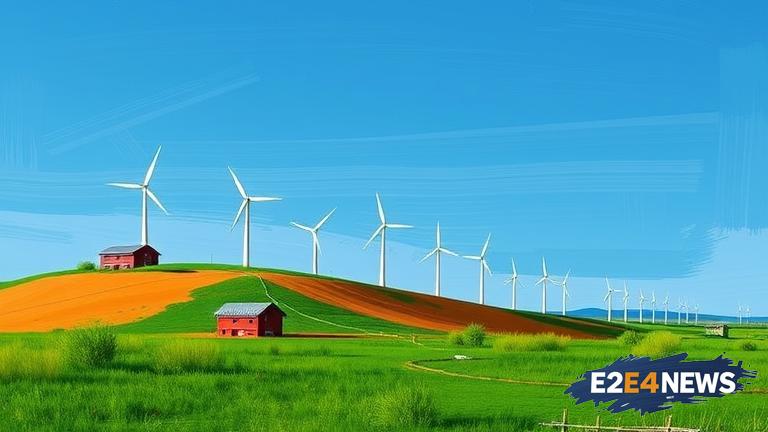The African continent is witnessing a significant shift towards renewable energy, driven by the need to address the pressing issues of energy access, climate change, and sustainable development. With a growing population and increasing economic activities, the demand for energy is on the rise, and renewable energy sources such as solar, wind, and hydroelectric power are becoming increasingly attractive. Many African countries are now investing heavily in renewable energy infrastructure, with a focus on solar and wind power. For instance, South Africa has set a target of generating 42% of its electricity from renewable sources by 2030, while Morocco aims to increase its renewable energy capacity to 52% by 2030. Egypt, on the other hand, has launched an ambitious plan to generate 20% of its electricity from renewable sources by 2022. The use of renewable energy is not only helping to reduce greenhouse gas emissions but also creating new job opportunities and stimulating local economies. In addition, renewable energy is becoming more competitive with fossil fuels, making it a viable option for many African countries. The cost of renewable energy technologies such as solar panels and wind turbines has decreased significantly over the years, making them more accessible to African countries. Furthermore, the African Union has launched the Africa Renewable Energy Initiative, which aims to achieve at least 300 GW of renewable energy capacity by 2030. The initiative has received significant support from international organizations and donors, who are providing financial and technical assistance to African countries to develop their renewable energy sectors. The private sector is also playing a crucial role in promoting renewable energy in Africa, with many companies investing in renewable energy projects across the continent. For example, the Norwegian company, Scatec Solar, has invested in several solar power projects in Africa, including a 400 MW solar power plant in Egypt. Similarly, the French company, Engie, has launched a number of renewable energy projects in Africa, including a 100 MW wind farm in Morocco. The growth of renewable energy in Africa is also being driven by innovative financing models, such as the use of green bonds and crowdfunding platforms. These models are helping to mobilize capital for renewable energy projects and reducing the financial risks associated with investing in renewable energy. Moreover, many African countries are now implementing policies and regulations to support the development of renewable energy, such as tax incentives and feed-in tariffs. The use of renewable energy is also helping to improve energy access in Africa, particularly in rural areas where access to electricity is limited. For instance, off-grid solar systems are being used to provide electricity to rural communities, improving their quality of life and economic opportunities. In conclusion, the renewable energy revolution in Africa is gaining momentum, driven by the need to address the pressing issues of energy access, climate change, and sustainable development. With the support of international organizations, the private sector, and innovative financing models, African countries are increasingly turning to renewable energy sources to meet their growing power demands and reduce their dependence on fossil fuels.
